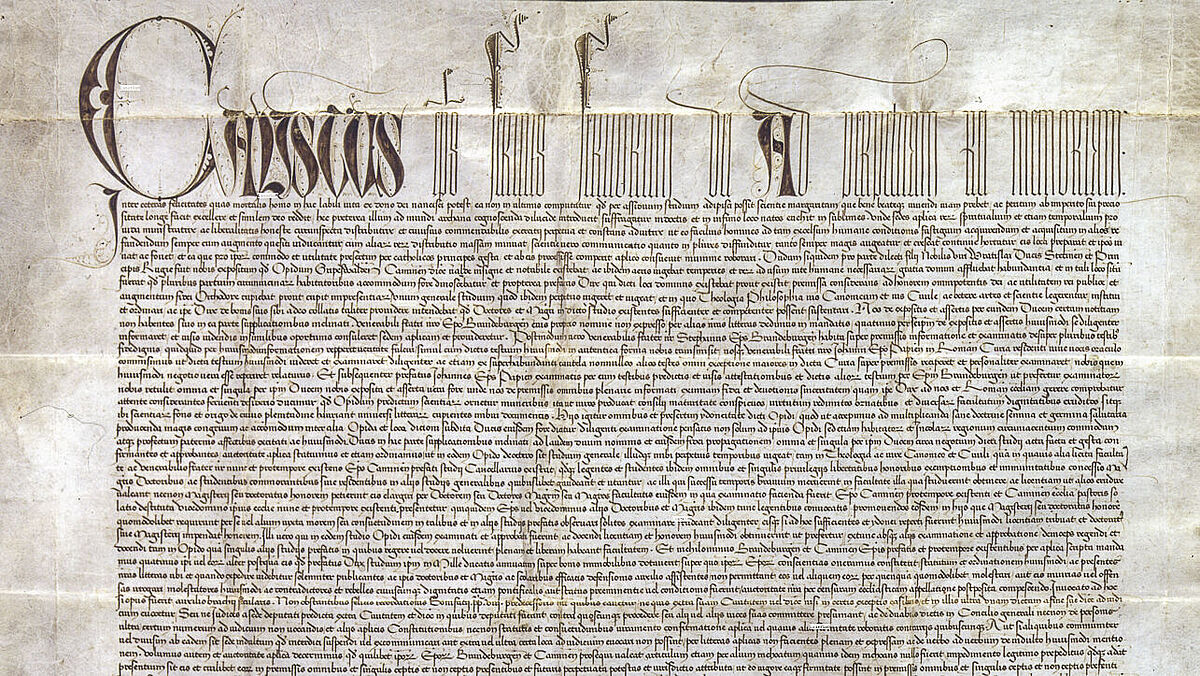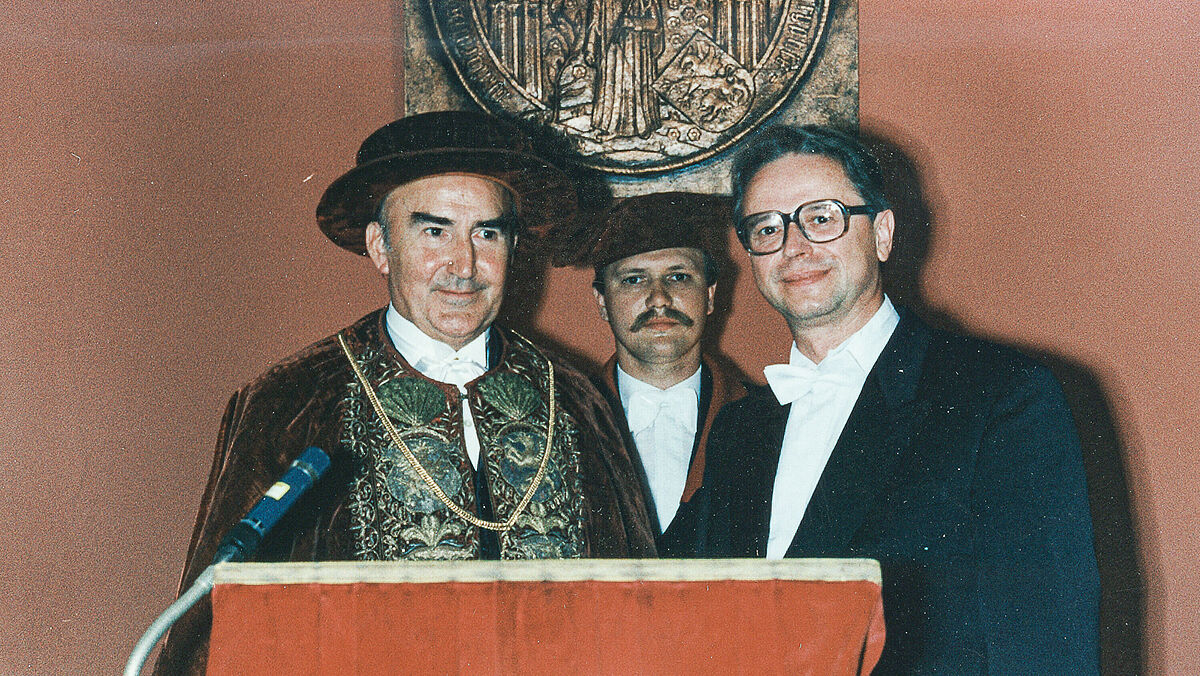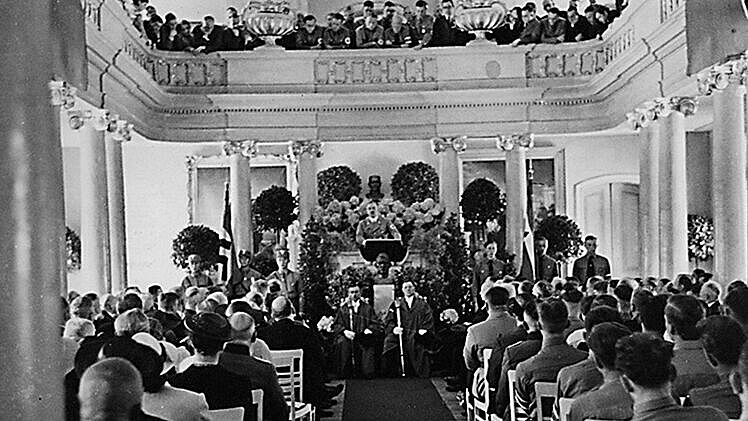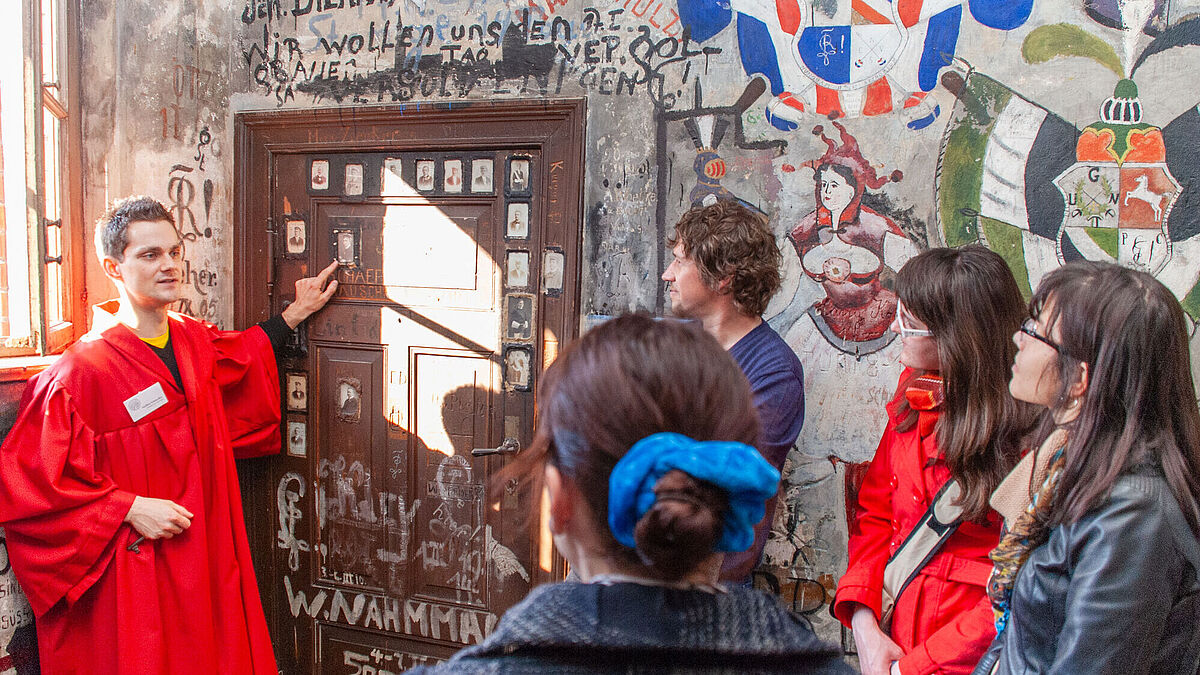History & Tradition
The University of Greifswald is one of the oldest universities in Germany and the Baltic Sea region. The University was founded on 17 October 1456 as Academia Gryphica. It is also the oldest Swedish university, as the region was under Swedish rule after the end of the Thirty Years' War until 1815.
It was founded on the initiative of the town's mayor Heinrich Rubenow following approval by Emperor Frederick III and Pope Calixtus III and under the protection of the Pomeranian Duke Wartislaw IX. Heinrich Rubenow became the first Rector of the University. The founding ceremony took place in Greifswald's cathedral St. Nikolai. This is still the venue for university events such as the annual opening ceremony. The University started with the four classic faculties of Theology, Philosophy, Medicine and Law. 173 students were enrolled in the first year.
Due to its location and the Hanseatic League, intensive relations with the Scandinavian neighbours and the Baltic States were established from early on. From 1648 to 1815, the University belonged to Swedish Pomerania as a result of the division of Pomerania through the Peace of Westphalia. Sweden's scientific policy left its mark on the University. Today, the Baltic Sea region is one of three research domains at the University of Greifswald.
From 1815 to 1933, the University belonged to Prussia and developed into a modern research university.
During the National Socialist era, the University was faced with the challenge of adjusting to the dictatorship. In the course of this transformation process, the University developed into an institution that taught National Socialist ideology, was involved in weapons research and also played a role in National Socialist injustice. The University was closed at the end of the Second World War. It reopened on 15 February 1946.
In the subsequent GDR period until 1990, the University, which was called the Ernst-Moritz-Arndt University of Greifswald from 1954 to 2018, was strongly ideological. It was influenced by the SED, which exercised political control over research and teaching.
Today, the University of Greifswald sees itself as a research university. It draws its research strength primarily from the intensive cross-disciplinary collaboration between the five faculties, including the Faculty of Medicine (University Medicine).
We invite you to take a look at the multifaceted history of the University of Greifswald and give you an insight into its traditions.





